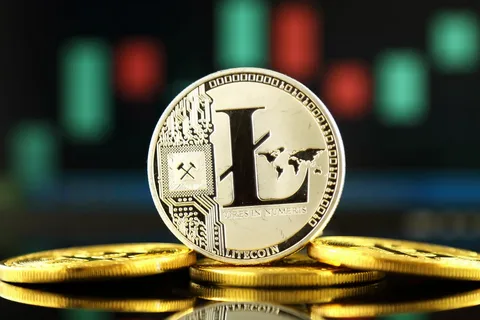Cryptocurrency Exchanges 101: A Beginner’s Guide
In the rapidly growing world of cryptocurrencies, understanding the concept of exchanges is crucial for anyone interested in trading or investing in digital currencies like Bitcoin, Ethereum, and others. In this article, we’ll delve into the world of cryptocurrency exchanges, explaining what they are, how they work, and what to look for when choosing an exchange.
What is a Cryptocurrency Exchange?
A cryptocurrency exchange, also known as a digital currency exchange, is an online platform that enables users to buy, sell, and trade cryptocurrencies, such as Bitcoin (BTC), Ethereum (ETH), Litecoin (LTC), and others, for various fiat currencies, like US dollars (USD), euros (EUR), and Chinese yuan (CNY), as well as other digital currencies.
Exchanges act as a market place where buyers and sellers meet to trade, similar to a stock exchange. They provide a platform for users to create an account, deposit funds, and place buy or sell orders for cryptocurrencies.
How Do Cryptocurrency Exchanges Work?
Here’s a step-by-step overview of the process:
- Registration: Create an account on a cryptocurrency exchange by providing basic information, such as email address, password, and phone number.
- Deposit: Fund your account with fiat currency or other cryptocurrencies. Exchanges typically offer various payment methods, including bank transfers, credit/debit cards, and other cryptocurrencies.
- Place an Order: Choose a cryptocurrency to buy or sell, select a price, and set your desired trade size.
- Matching Engine: The exchange’s matching engine matches your order with other users’ orders, often using a combination of manual and automated processes.
- Trade Execution: The trade is executed, and the exchange transfers the agreed-upon amount of cryptocurrency to your account.
- Withdrawal: You can withdraw your funds to a digital wallet or sell your cryptocurrencies for fiat currency.
Types of Cryptocurrency Exchanges
There are several types of exchanges, each with its unique features and characteristics:
- Centralized Exchanges (CEX): These exchanges are controlled by a central authority and are the most popular type. Examples include Coinbase, Binance, and Kraken.
- Decentralized Exchanges (DEX): These exchanges use blockchain technology to facilitate peer-to-peer trading, eliminating the need for a central authority. Examples include Uniswap and SushiSwap.
- Hybrid Exchanges: Combining elements of both centralized and decentralized exchanges, hybrid exchanges, like OKEx, offer a mix of centralized and decentralized features.
What to Look for in a Cryptocurrency Exchange
When choosing a cryptocurrency exchange, consider the following factors:
- Security: Ensure the exchange has a strong security record and implements security measures, such as two-factor authentication, cold storage, and encryption.
- Fees: Check the exchange’s fee structure, as some exchanges charge lower fees than others.
- Liquidity: Choose an exchange with high liquidity, which ensures easier buying and selling of cryptocurrencies.
- User Interface: Opt for an exchange with a user-friendly interface, making it easy to navigate and execute trades.
- Reputation: Research the exchange’s reputation, read reviews, and check their ratings to ensure they are legitimate and trustworthy.
- Regulation: Look for exchanges that comply with regulatory requirements and are licensed in their jurisdiction.
Conclusion
Cryptocurrency exchanges are a crucial aspect of the digital currency ecosystem, enabling users to buy, sell, and trade a wide range of cryptocurrencies. By understanding how exchanges work and what to look for when choosing an exchange, you can make informed decisions and navigate the world of cryptocurrencies with confidence. Remember to always prioritize security, fees, liquidity, user interface, reputation, and regulation when selecting an exchange. Happy trading!

